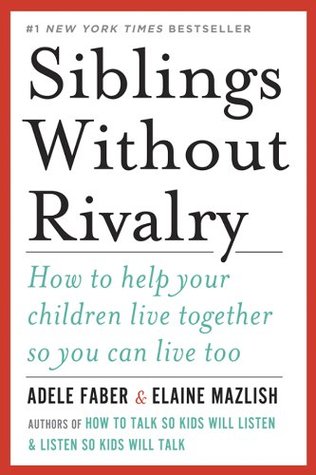More on this book
Community
Kindle Notes & Highlights
by
Adele Faber
Read between
September 26 - October 6, 2019
Happily, they soon discovered that with children you always get a second chance.
Maybe it’s because in his case there’s such extreme inequity. Not with things, but with time. He bitterly resents all the time I have to give his younger brother, who has a learning disability. He even accuses me of liking his brother better.” “You’re describing a very difficult situation,” I said. “And you’re right. Empathy can only go so far toward meeting a child’s legitimate needs.
By valuing and being partial to each child’s individuality, we make sure that each of our children feels like a number one child.” There were no more questions.
She shouldn’t have to tiptoe through her childhood in order to compensate for her brother’s problem.”
All my parents ever thought about or talked about were Donald’s illnesses.
When parents take the stance: ‘In this house I’m the one who’s going to decide who has to share, who gets to keep; what’s reasonable, what’s unreasonable; who is right, who is wrong,’ the children end up becoming more dependent upon the parent and more hostile towards their siblings. “What eases the tension, what makes harmony possible, is the attitude of ‘Who needs what? . . . Who feels what? . . . What solutions can be worked out that take everyone’s feelings and needs into account?’ We’re not so much interested in technicalities as we are in each other’s well being.


